Global Equity Market
The global equity markets rebounded since March, 2020 as COVID-19 lockdown measures began to be lifted and global central banks timely monetary measures were announced. After the global central bank launched quantitative easing to inject liquidity into the market, the global equity market has recovered and recorded the largest monthly increase in years.
| Index | Rebounds from the year low | Year-To-Date (YTD) |
| Dow Jones Industrial Average | 41.72% | -9.58% |
| S&P 500 | 41.45% | -4.14% |
| Hang Seng Index | 15.55% | -13.35% |
| Oil Futures | 157.51% | -37.65% |
| Copper Futures | 37.08% | -3.57% |
Source: Bloomberg.com, investing.com Last Update: 30/6/2020
| Dow Jones Industrial Average |
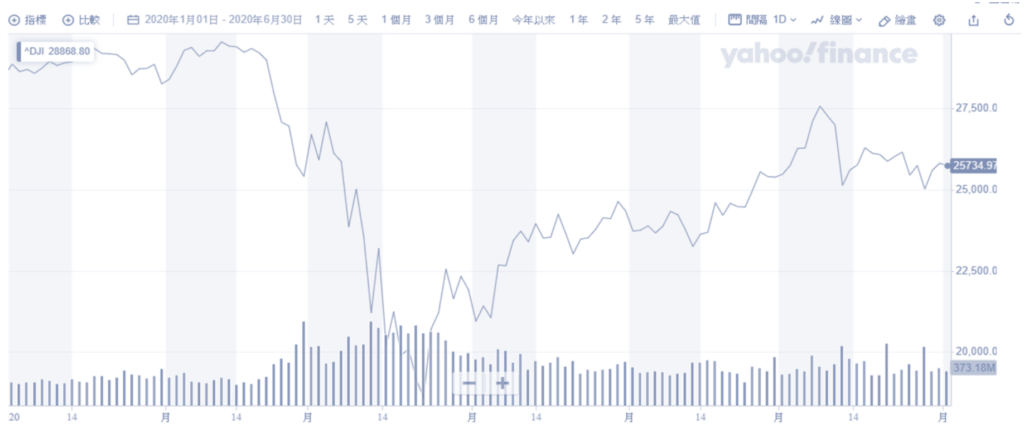
| S&P 500 |
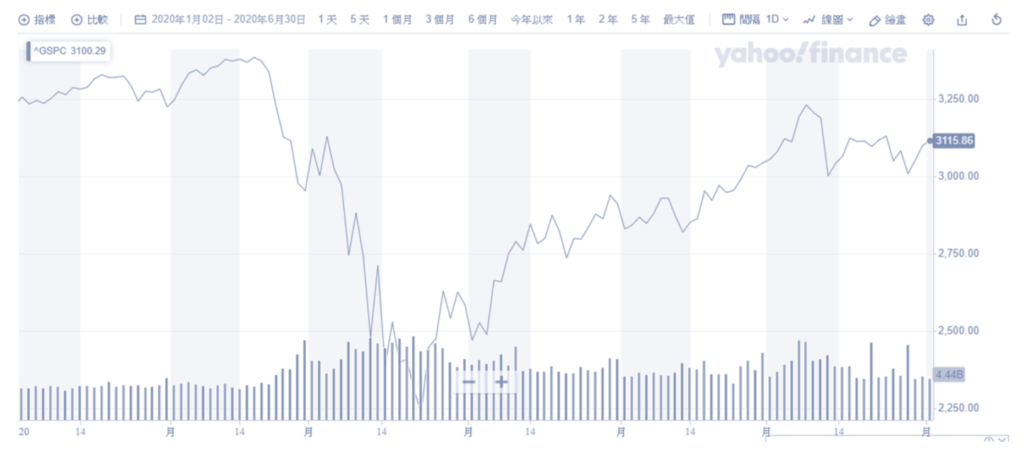
| Hang Seng Index |
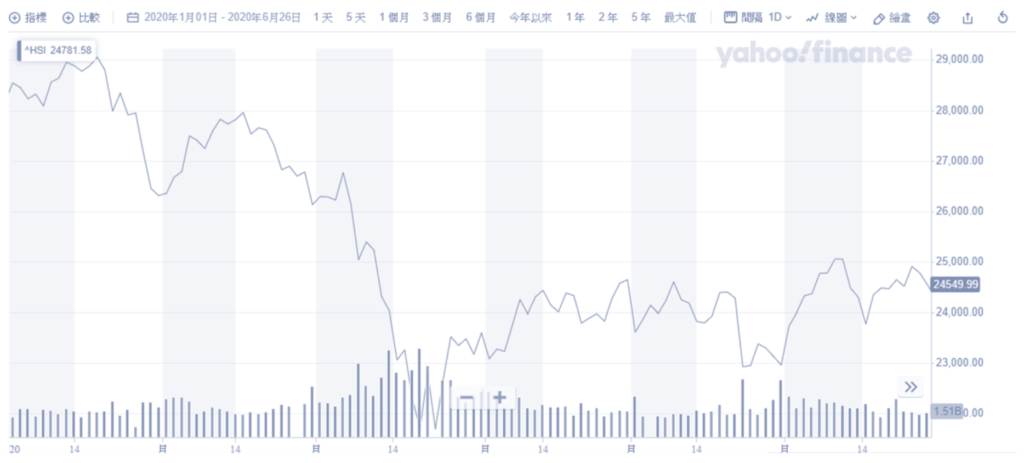
| Oil Futures |
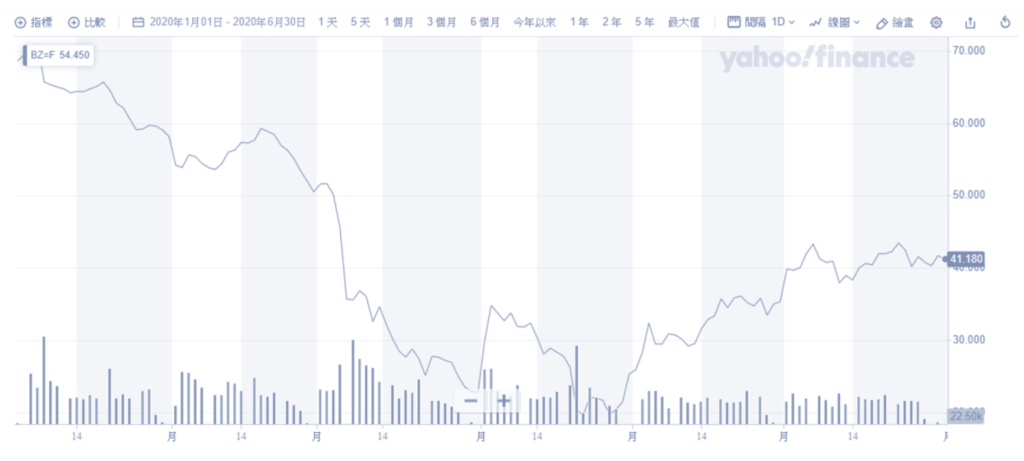
| Copper Futures |
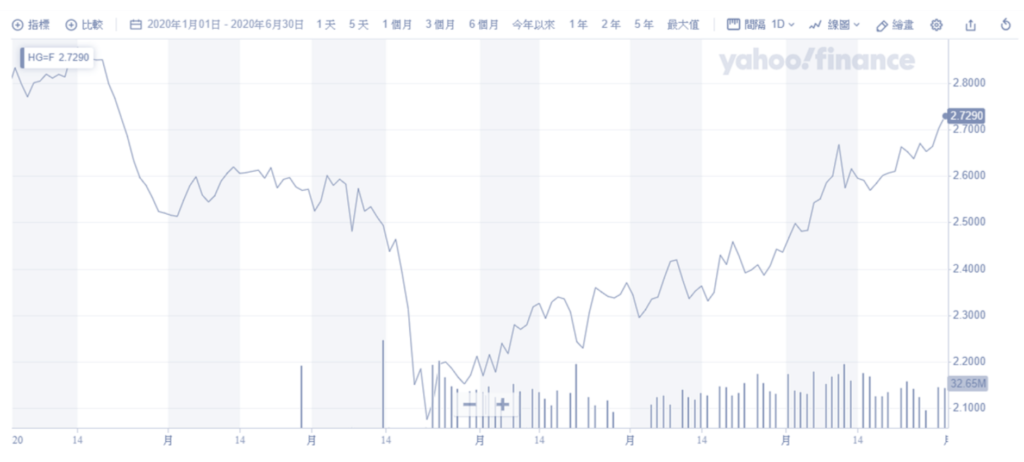
According to the forecast in “Latest World Economic Outlook, April 2020” of International Monetary Fund (IFM), the GPD of most countries in the world will enter negative growth in 2020, which means the global economy has entered a state of recession.
However, the IMF report also predicted that under the vigorous global stimulus measures, market confidence will be prevented from falling sharply and the economy will be prevented from falling into a deeper recession. The GDP of countries around the world will recover rapidly in 2021 and enter positive growth again.
| Latest World Economic Outlook Growth Projections |
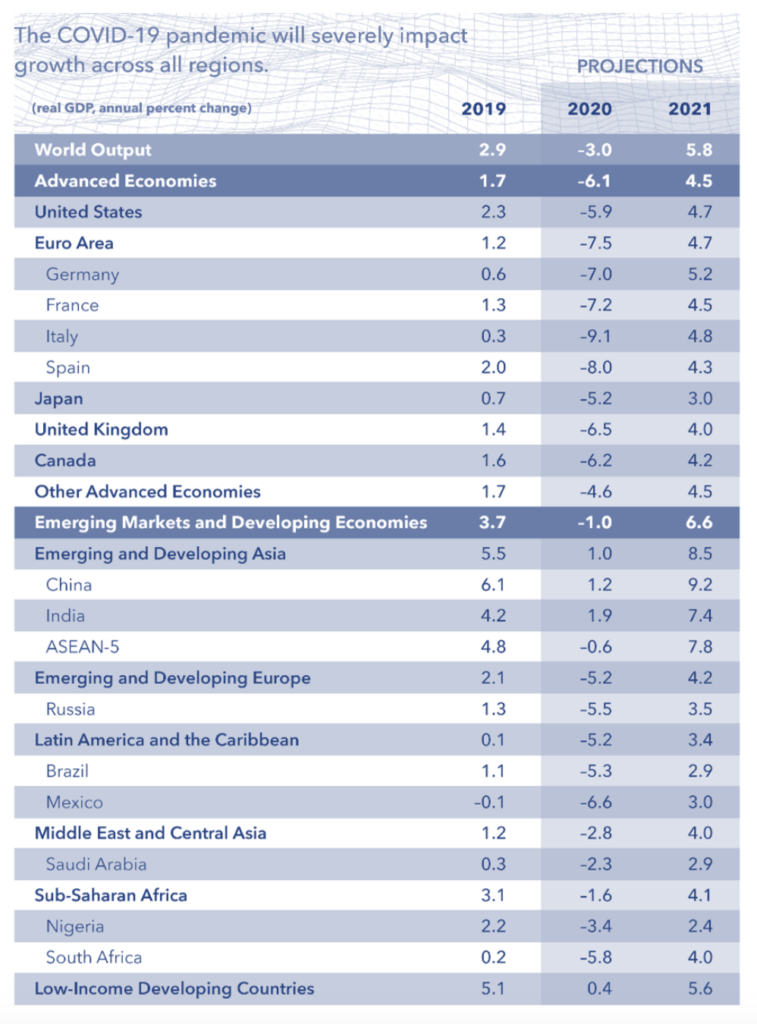
It is believed that, when the economy recovers, the market’s demand for commodities will increase greatly and provide support for the prices of commodities.
Copper Market
Copper Prices
In the past 20 years, there have been two large-scale economic recessions around the world, namely dot-com bubble in 2000 and the financial crisis in 2008. During the two economic recessions, copper prices have recorded a sharp decline, but, after the recession, copper prices rebounded sharply within a few years and reached a new high.
| Historical Price of Copper from 2000 to 2020 |
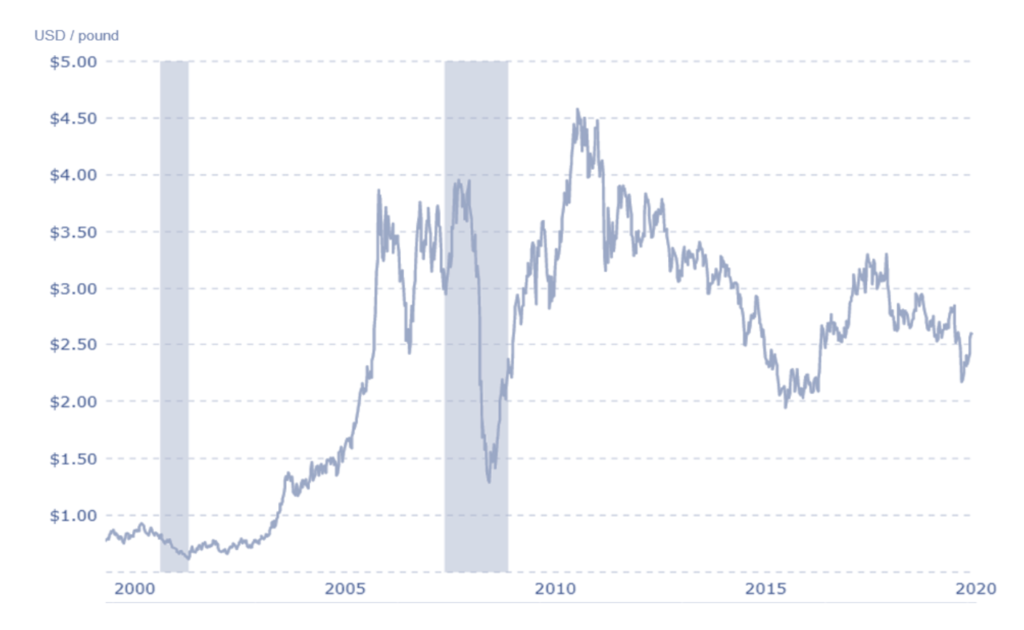
The health shock of COVID-19 in 2020 caused countries around the world to suddenly enter a state of shock and the global economy entered a recession. The market demand for commodities fell sharply, causing the price of commodities to plummet. However, the implementation of strong economic stimulus policies by central banks around the world has alleviated the impact of COVID-19 on individuals, businesses, and the financial system. It is believed that once COVID-19 subsides, the economy can recover quickly, and the global demand for commodities will increase significantly, as the recessions occurred before.
According to the official data of the London Metal Exchange (LME), copper prices have rebounded from US$4,617/ton on March 23 to US$6038/ton on June 30, rebounded by more than 30%, and still maintaining an upward trend.
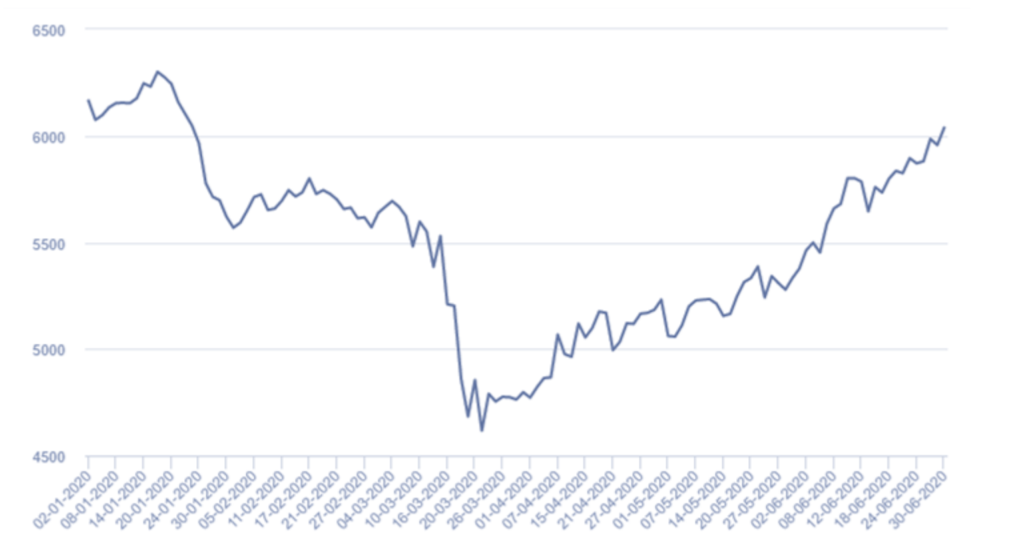
Source: London Metal Exchange
Overall, copper prices have continued to grow after March, and the market’s longing for economic recovery is the core factor of this upward trend. The copper market is still cautious about the demand- oriented recovery. The continued suspension of production and the tight supply will continue to provide support for copper prices.
Copper Demands – Smart Home Applications
Through an extensive study by International Copper Association (ICA), in the upcoming future, copper will be substantially used in smart home applications, energy storage for mobility and stationary storage, and automotive wire harnesses for electric vehicles.
By 2030, the total demand of copper used in smart home applications is expected to reach 1.5 million tons per year, compared to 38 thousand tons per year in 2018. This substantial growth is due to the continued global demand for smart home systems. As the global smart home market continues to grow, this rapid growth will occur, with 1.6 billion systems expected to be installed by 2030. In a range of applications, copper is used in smart home hubs, switches, routers, wiring, and lithium-ion batteries.
Copper Demand in Smart Home Applications
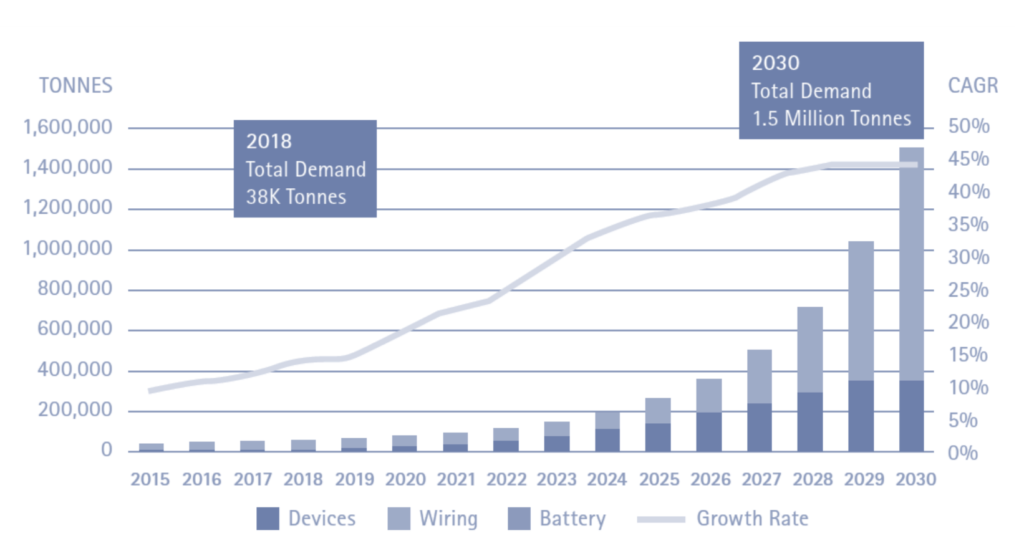
Source: Annual Report 2019, International Copper Association
Copper Demands – Energy Storage
Copper is an important material for the manufacture of lithium ion batteries. According to IDTechEx research, the global demand for energy storage in electric vehicles and stationary storage applications has increased significantly and the global copper demand for energy storage will increase by 2.3 million tons per year by 2029. According to IDTechEx prediction, by 2029, the total copper demand for energy storage will slightly exceed 9 million tons in the next decade.
| Copper Demand in Energy Storage for Mobility and Stationary Storage |
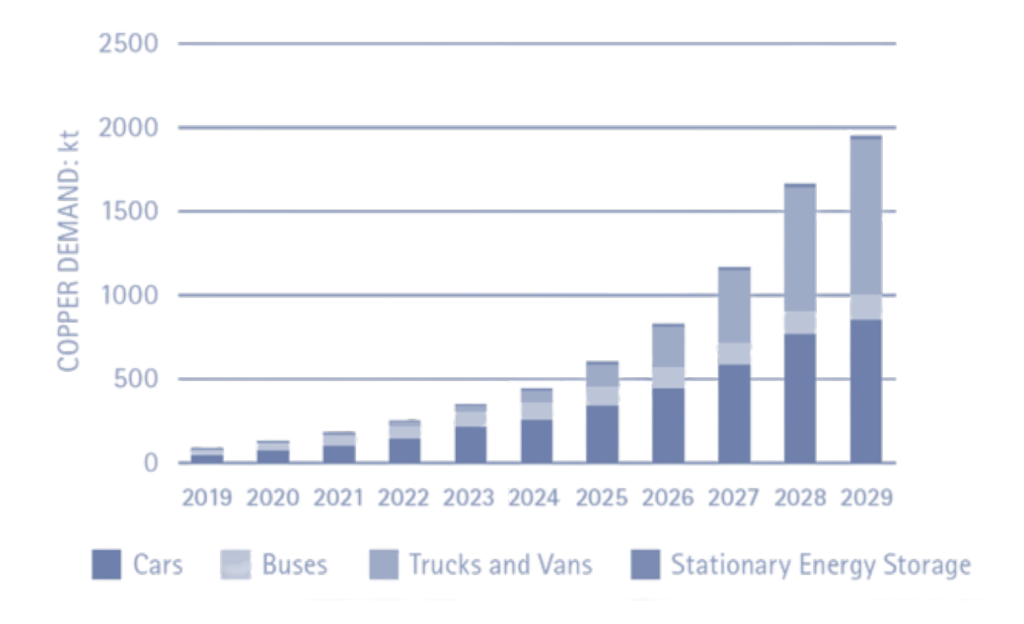
Copper Demands – Electric Vehicles
According to the “Global EV Outlook 2020” released by the International Energy Agency (IEA), electric vehicles are expanding rapidly. In the Stated Policies Scenario, the global stock of electric vehicles increased from 8 million in 2019 to 50 million in 2025 and will be close to 140 million in 2030. In the Sustainable Development Scenario, the global stock of electric vehicles will reach nearly 80 million in 2025 and 245 million in 2030.
| Global electric vehicles stock and sales by scenario, 2019, 2025 and 2030 |
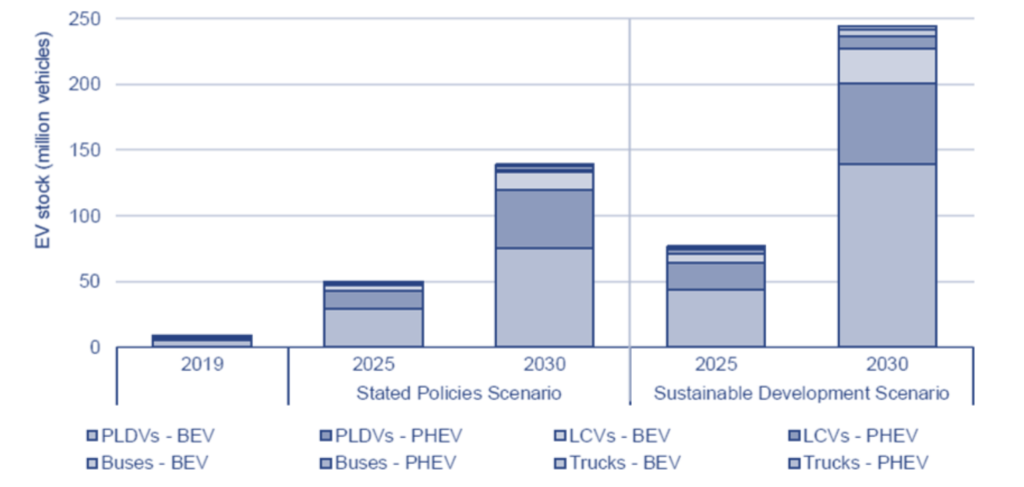
According to the International Copper Association (ICA) new research, the growth of the electric vehicle (EV) market in the next decade will have a significant impact on copper demand, as shown below, the copper demand for electric vehicle is expected to reach 1,750 thousand tons per year in 2027, compared to 200 thousand tons per year in 2017.
| Copper Demand in Electric Vehicles |
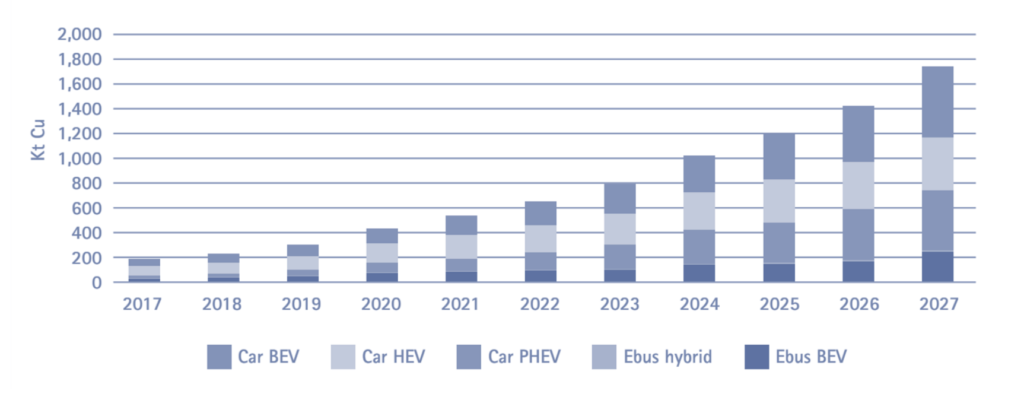
According to research conducted by ICA, each type of electric vehicles uses considerably more copper, at least four times, than traditional vehicles with internal combustion engines. Copper is essential to electric vehicles industry, including electric vehicles, charging stations and supporting infrastructure due to its durability, high conductivity and efficiency. Since electric vehicles rely heavily on copper for the motor coil that drives the engine. In addition, the cabling for changing stations of electric vehicles will be another source of copper usage. Electric vehicles industry will require a substantial amount of copper over the next ten years.
| Copper usage in different vehicles |
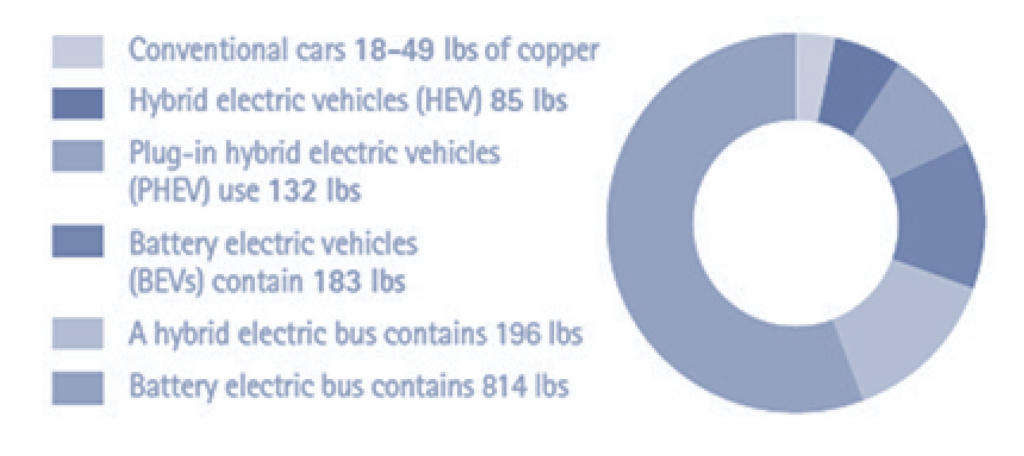
STO Market
Security Token Offering (STO) are booming in the digital asset market due to the steady improvement of the digital asset ecosystem, the strengthening of regulation, and toward institutionalization possibly after 2025. According to Chain Partner’s Insight Report, the STO market (accumulative issuance base) will grow to USD 2 trillion in 2030 with a 59% compound annual growth rate (CAGR) during 2019 to 2030.
| Security Token Market Size (Accumulated Issuance Base) |
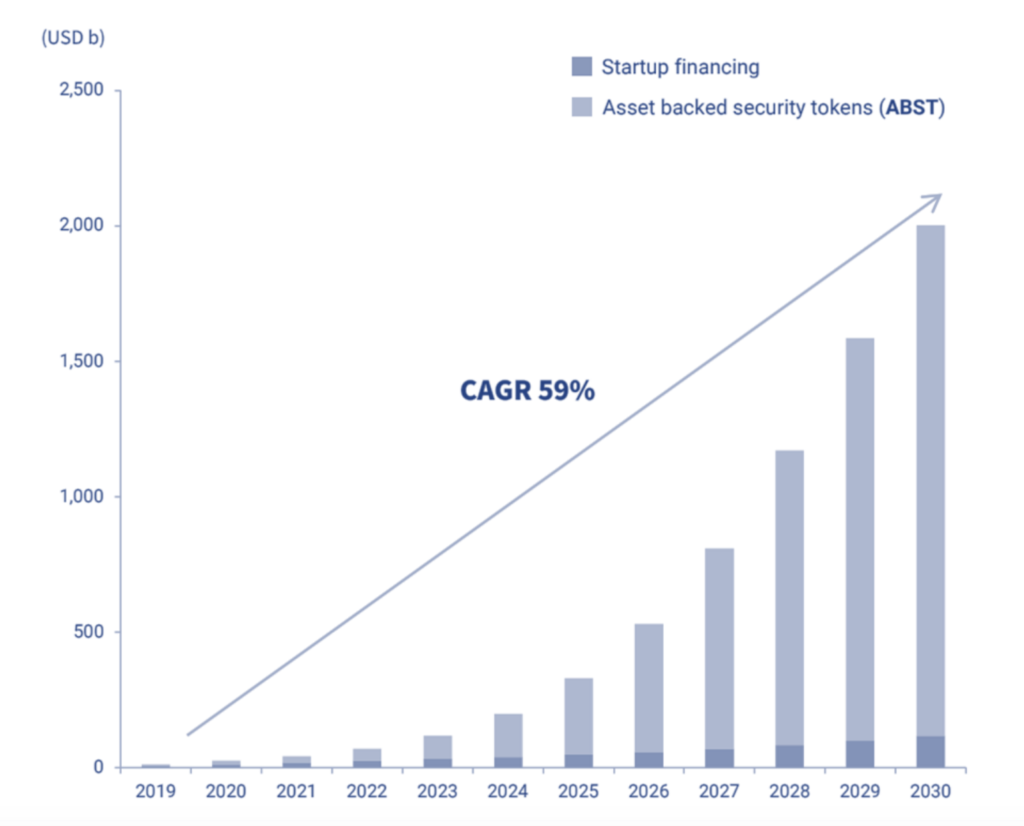
Since STO is still in an initial stage, most of participants are still adopting a wait-and-see attitude. However, as the attractiveness of STO in the market continues to increase due to the steady improvement of the digital asset ecosystem and regulations, more and more companies adopt STO and give up the traditional IPO to raise fund.






